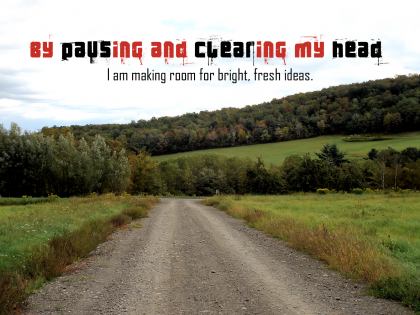“By three methods we may learn wisdom: first, by reflection, which is noblest; second, by imitation, which is easiest; and third, by experience, which is the most bitter.” ~ ConfuciusWhat is a self reflection?
Do you ever feel like you are running from one activity to another, or studying a mad rush of one subject after another? When things happen at such a fast pace, it is easy to lose sight of what you are doing, or what you are learning. It is important to stop yourself every now and then to think about what you have been doing or learning. Self reflection means stopping the mad rush of activity and calming yourself and your mind so your brain can evaluate the input it has already received.
Self reflection is an essential skill for a successful student. It allows you to compare your work over time, create evaluation criteria for a project and discuss your strategies for reading a difficult piece of text. It gives you an opportunity to step back from your work and think about your own efforts and feelings about the topic and the learning that took place. These are qualities of self-directed learners, not passive learners.
How to write a self reflection

- Find a quiet place.
- Jot down some notes on things that you learned in this week that you did not know before. (These are the things that go in your first paragraph).
- Let your mind ponder on the notes you have written and make some connections. Just pausing to think deeply allows your brain to make connections so that new information can be quickly retrieved when you need it again. Next, think about things that you still wonder. For example, maybe you learned about a certain body system, but you’re not sure how it works together with the other body systems. Maybe you learned a new way to solve a math problem, but you’re not sure when to use it. Writing down your questions will help you remember to continue seeking answers the next time you are exposed to the same topic.
Time to make way for new ideas!
References:
- Lew, Magdeleine D. N., and Henk G. Schmidt. "Self-reflection and Academic Performance: Is There a Relationship?" National Center for Biotechnology Information. U.S. National Library of Medicine, 05 May 2011. Web. 19 Sept. 2013.
- Greene, Maxine. "The Importance of Personal Reflection." Edutopia. N.p., n.d. Web. 19 Sept. 2013.